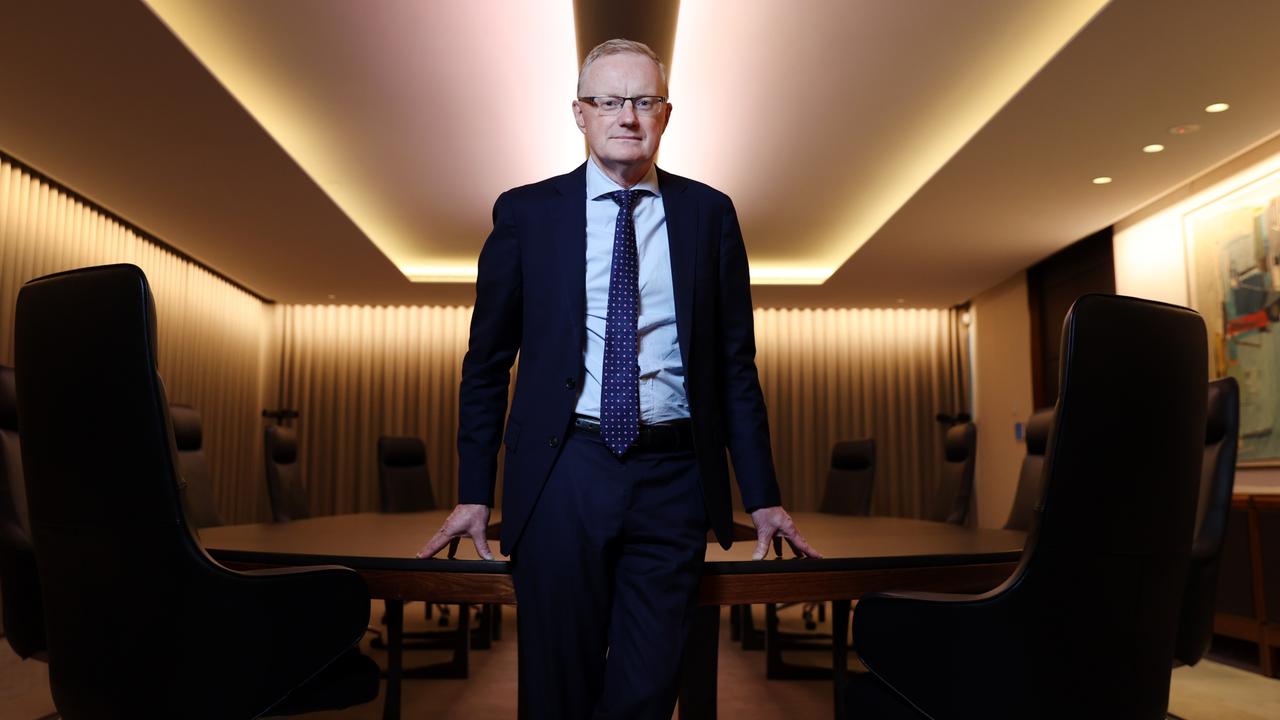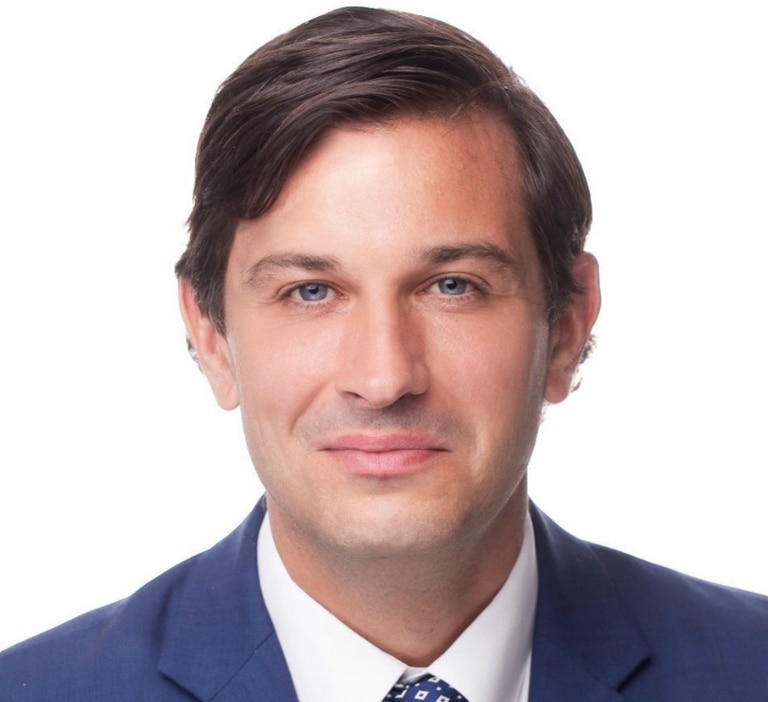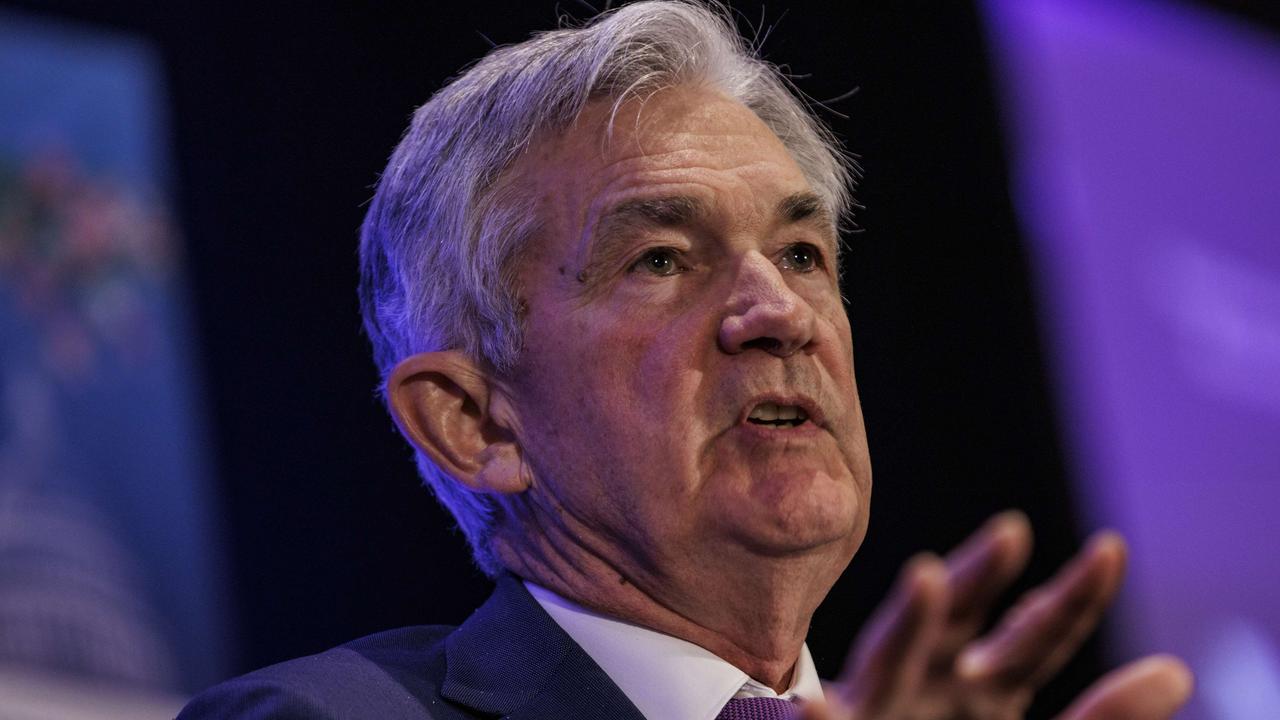BlackRock’s RBA message: Learn to live with inflation
Overshooting on interest rate hikes is likely to cause more economic heartache than the problem it is trying to cure.

As the Reserve Bank of Australia lays the groundwork for an interest rate hike in coming months, the world’s biggest asset manager has cautioned it not to overshoot as it tries to stamp out what is essentially a supply chain problem.
The $US10 trillion ($13 trillion) BlackRock believes we need to learn to live with inflation, and moves by central banks around the world – including positioning by the US Fed for an aggressive round of interest rate hikes – are the wrong response to the reason why prices are rising.
Overshooting on rate hikes was likely to cause more economic heartache than the problem it was trying to cure, said BlackRock’s Singapore-based chief investment strategist Ben Powell.

Powell’s comments came as the RBA shifted to a more hawkish position following its monthly board meeting, with economists hardening their view that there will be a series of rapid fire rate rises from June.
RBA governor Philip Lowe noted there was not yet enough evidence that inflation had sustainably reached the bank’s target range as he kept the cash rate at a record low for the 15th month in a row.
However, he said the central bank would be watching developments as he dropped the RBA’s longstanding reference to being “prepared to be patient” in its approach to inflation.
For months the RBA has argued much of the inflation here is due to ongoing supply-side problems, including the disruption to energy markets amid fallout from Russia’s invasion of Ukraine.
While inflation had increased in Australia to be sitting at 2.6 per cent on an underlying measure, it remained lower than in many other countries, the RBA chairman said on Tuesday.
Now the central bank is waiting until the next quarterly inflation reading to be released at the end of this month as well as the wages index in mid-May before considering whether to hike from 0.1 per cent.

It also wants to see some evidence of wages growth. This suggests that the politically charged federal election in May will come and go before the RBA feels compelled to move, with economists now widely pencilling in a June hike.
But the market is betting on at least another two rate hikes in thefollowing months.
BlackRock’s Powell believed central banks around the world including the powerful US Fed had been “unrealistically hawkish” in their approach to raising interest rates even as the US economy was battling its highest inflation in 40 years.
“We think inflation will likely decline over the course of 2022 mostly driven by supply-side normalisation, which is to say, as more economies can move to living with Covid the more factories and ports and shipping can normalise. This should mean more goods can get to more people more efficiently,” he told The Australian.
“A diagnosis of the inflation we’re seeing is that it is predominantly being driven by supply-side congestion.
“And as that reduces, inflation should come down.
“Our framing of inflation is that it’s disproportionately driven by supply-side factors, and therefore central banks’ ability to influence that is relatively limited.”
Xhead
Market positioning
Powell’s team develops strategy across Asia Pacific markets for the research arm of BlackRock. But even small changes in its view or outlook could impact tens of billions of dollars that BlackRock has under management across its myriad of active funds.
By living with inflation investors need to build some resistance into their portfolios, including an overweight exposure to “real assets” – infrastructure and shares in companies that can raise prices easily and adjust to inflation over time.
It also means an underweight position against nominal assets such as fixed income, and emerging market bonds in particular.
He acknowledged that he was taking a contrarian position on how to deal with inflation with market expectations of an aggressive path for interest rate hikes in the US, with rate rises pencilled in at each of the next six meetings of the Fed board for the rest of this calendar year. This comes on top of the 25 basis point rise earlier this month.
“We think the Fed is not that capable of adjusting the situation in Ukraine or semiconductor shortages, supply chain bottlenecks, and so forth.
“By hiking too much that probably won’t solve inflation, given our diagnosis, but it may cause growth to decline and may cause unemployment, which would seem a bit strange – why would the Fed want to create unemployment and not really solve the inflation problem?”
While he stopped short of calling a US recession as a result of the rapid-fire rate rises, he expected there to be unnecessary pain as mortgages rise.

Powell said Australia’s more patient approach to rate hikes coming out of Covid and the fact that it was on the right side of the ledger when it came to benefiting from the surge in commodity prices and being a net exporter had put it in a better position.
“It feels like the lucky country is on the right side of this commodity shock. And that is a huge distinction from other parts of the world and particularly Asia. Most parts of Asia are net importers of calories.”
Last month BlackRock co-founder Larry Fink said in his annual letter to CEOs that two years of strained supply chains from the Covid pandemic and the Russian invasion of Ukraine had “put an end to the globalisation” the world had experienced over the last three decades.
This could see companies and governments looking more broadly at their dependencies on other nations or lead companies to onshore or “nearshore” more of their operations.
Powell said we were really at the beginning of a “rewiring” of the process where companies valued security of supply over efficiency. This major shift could take years or even decades to play out.
“Geopolitics, the pandemic, even floods in Australia. All of these different factors have made some supply chains appear more fragile than we thought from just a couple of years ago,” Powell said. “And very naturally companies are adjusting to them.”
johnstone@theaustralian.com.au
Originally published as BlackRock’s RBA message: Learn to live with inflation







